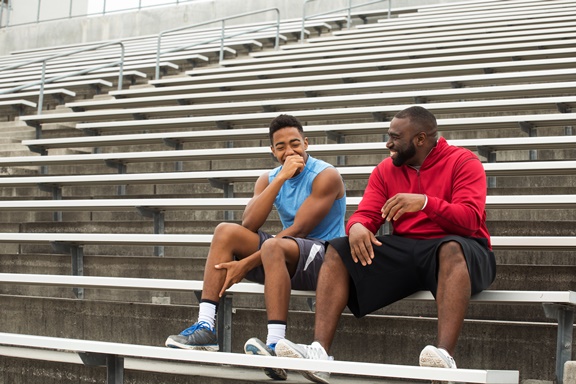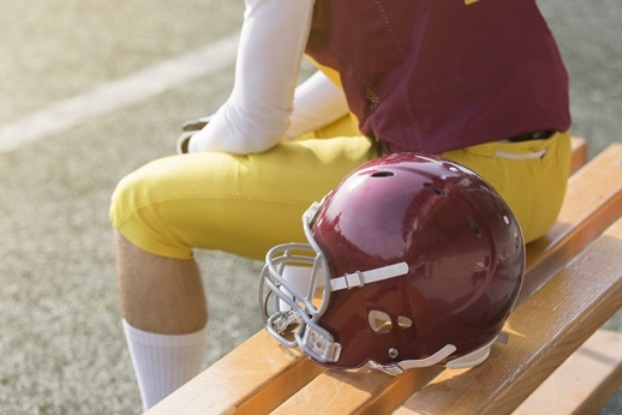8 Most Popular Past Times Of College Athletes
Juggling sports and studies, the life of a college athlete isn’t easy. Morning practice, late morning classes, a quick lunch break, more afternoon classes, more afterschool practice, heading home, hitting the sack for the next day—they have it rough. And, every time, they’d wonder if their athletic careers would get them into the big-time leagues.
For college athletes, having a life outside school is a necessity. Think about it: if the pros have hobbies, why shouldn’t student athletes? They need to spend time away from sports while their bodies heal, especially during the off-season. From a non-athlete perspective, think of it as taking a break from your work. You risk losing your mind if you don’t take a breather every now and then.
Here are several well-known pastimes of college athletes:
1. Yoga
While it might not become a sport anytime soon, yoga can help college athletes significantly. One study by researchers at San Diego’s National University found that taking part in yoga classes once every two weeks for ten weeks can increase an athlete’s flexibility. Any gymnast or figure skater will tell you that a flexible body is crucial in pulling off graceful moves.
Because yoga is considered a low-impact activity, it won’t have any detrimental effect on an athlete recovering from an injury or fatigue. It also gives them peace of mind, as well as a chance to pause and catch their collective breath.
2. Cooking
As most college students move out of their families’ homes, they can only rely on themselves (and their roomies to an extent). Developing essential home skills, such as cooking, can be helpful in the long run. Besides, a well-balanced diet goes a long way in improving an athlete’s performance.
It’s not unusual for colleges and universities to offer cooking classes to their athletes. The courses teach everything, from menu planning to nutritious yet easy-to-make recipes. This way, they won’t have to feed on protein bars all the time.
3. Esports Betting
When the Murphy v. NCAA case ended in favor of the former, many states followed up with their respective laws allowing state-sponsored sports betting. As of this writing, 20 states have legalized sports betting, although some still prohibit betting on state-college athletics.
Esports also benefits from the ruling, with esports betting sites enjoying a recent surge. The U.S. is one of several regulated betting markets worldwide, meaning the players in esports games, such as DOTA 2 and League of Legends, are over 18 years of age. With esports a step closer to becoming a full-fledged sport, it’s not surprising that student athletes are familiar with them.
4. Writing
Whether on paper or a blog, writing is an excellent way for athletes to express the highs and lows in their lives. College athletics is chock full of stress that can mess an athlete’s mental wellbeing, if not dealt with immediately.
There’s no need to take an advanced course or something of the sort in this kind of writing. Simply being able to express oneself is enough; allowing ideas and words to flow from mind to pen freely. If an athlete faces a dilemma one day, they can look back to their past experiences for guidance.
5. Airsoft
Some student athletes still want the thrill of intense movement even in the off-season. One way to provide that is with an airsoft match, where their adrenaline can get pumping. Aside from being a popular hobby, airsoft is also great for team building.
As a hobby, airsoft will require you to have your own gun and set of armor. However, some airsoft centers allow for renting the gear, especially if you don’t think you can invest much in the future. Just remember, no full auto in buildings.
6. Video Games
Nothing says off-season relaxation better than picking up the controller (or for PC users, keyboard and mouse) and playing a round of Call of Duty or NBA 2K. Regardless of your side in the debate, video games are still one of the most popular pastimes worldwide. They’re so popular that, at one point, coaches were worried when their players spent too much time playing Fortnite.
Competitive play is the lure that reels student athletes into video games. Having trained so much, they’ve also developed the habit of giving their all in every online match. Video games also foster cooperation among teammates.
7. Photography
When not busy preparing for the next season, some student athletes pick up a camera, whether a DSLR or smartphone. Their subjects can range from friends and family to even fellow athletes in action. And, taking pictures of moving subjects is more challenging than you think.
Photography is also a great way to unwind as the search for good photos can take one to different places. A meadow in full bloom or sunset behind the skyline is a work of art waiting to be captured on the memory stick. If a career in sports doesn’t work out, photography can be a great alternative.
8. Reading
It’s easy to lose track of time just by picking up a long novel or comic book; nevertheless, it’s time well spent. Given that student athletes spend more time in sports than in academics, reading helps them make up for lost study time.
There are plenty of good reads out there, namely motivational books that can help student athletes get through their harsh lives. Sometimes, they participate in reading programs to help the children in their communities develop the habit.

Final Thoughts
As explained, a student athlete has countless pastimes to pick up and nurture. But, aside from aiding with overall wellbeing, there’s one more reason they’re crucial.
According to the National Collegiate Athletic Association, fewer than 2% of student athletes push through with entering the big leagues, such as the NBA or NFL. No matter how much they train in their respective sports, they rely more on their studies to prepare them for life after college. Finding one’s true calling by taking up a pastime provides them a fallback if college athletics doesn’t work.
By no means is this list exhaustive. There are countless other pastimes just as effective in keeping a healthy school-life balance. College life only comes once, so it’s best to make the most out of it.

